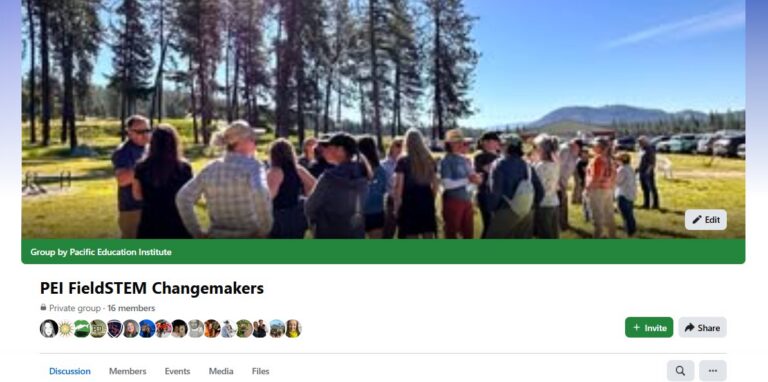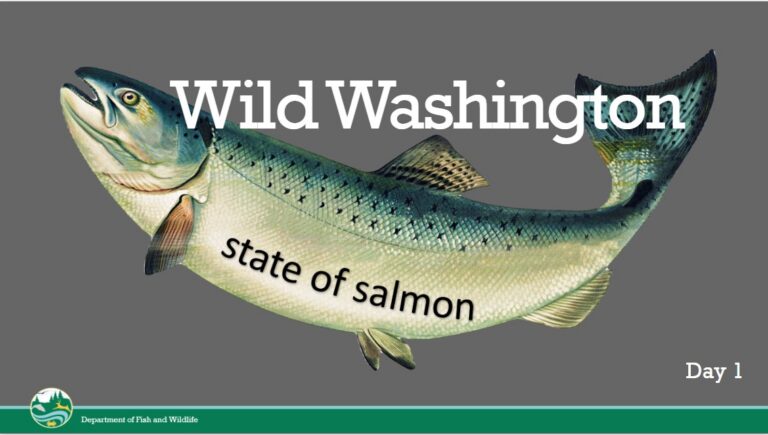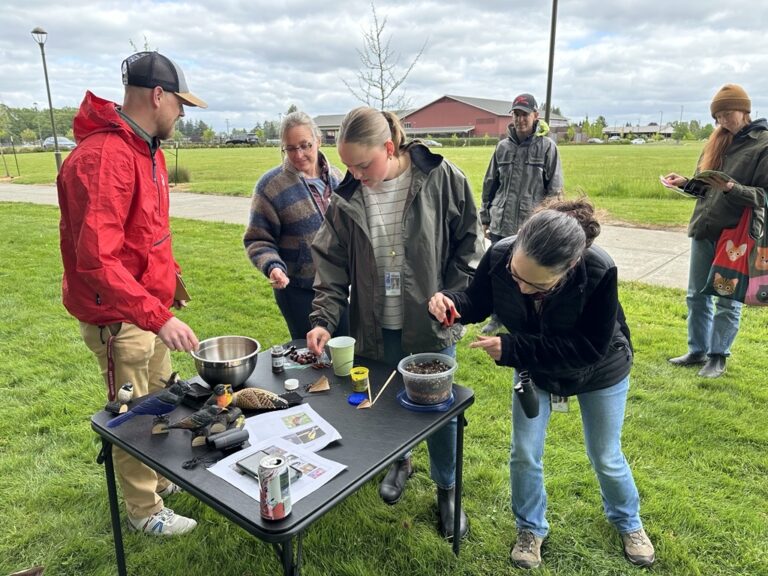Fall 2023
Where might you find a school administrator balancing on one leg, laughing as she asks a teacher in mid-somersault if she would join her for afternoon tea with the Queen? How about a great, hairy Sasquatch singing songs around a campfire? You’ll find them at the seasonal Outdoor Schools For All Training.
To break the ice at the three-day fall training in Ocean Park, October 23-27th, Cispus Learning Center facilitators led more than fifty

nonformal and formal educators and school administrators interested in developing their 5th and 6th-grade outdoor school program in fun, active community-building games. These games, along with weekly “cabin meetings” and family-style meals, fostered trust and open communication between staff from both sites and schools that resulted in stronger professional connections all week.
The professional learning was designed to model the type of education expected at outdoor school programs as described by the newly published Characteristics of a High-Quality Outdoor School (CHQOS). The CHQOS was developed by Outdoor Schools Washington (OSW) in partnership with PEI and other community leaders and is a growth tool comprised of a rubric, self-assessment tool, and growth plan to support outdoor schools programs to offer a more experiential, inquiry-based, standards-aligned, integrated, place-based, certifiably safe program for all 5th and 6th graders in WA state.
Participants spent a lot of time outdoors each day and the various mapping activities were a favorite. PEI facilitators led participants through sound, math, and cultural mapping to develop multidisciplinary academic skills, including cultural competency and social and emotional learning. “I learned to slow down and take time to listen. I also learned that sharing about my culture is very validating,” said 6th grade teacher Tammy Cresap, from Ridgefield school district. “The idea of incorporating more math in outdoor school was interesting. It makes me wonder if we should incorporate more of that,” shared another educator.
“I learned so much on the hike; this whole training was one of the best professional learning experiences I’ve been to.”
— Jason Rounds, 6th-grade teacher at Conway Middle School
During the week, participants experienced a three-hour FieldSTEM hike, got their hands sandy with a microplastics Field Investigation, experienced ELA in outdoor learning, water sustainability education, and native ways of knowing and tribal sovereignty education, and

learned how to build programming with local community partners and experts such as Coastal Raptors and TwinHarbor Waterkeeper. They also learned how to access funding sources, how to build NGSS-aligned lessons, and finally applied their learning during planning time. Staff from OSW, PEI, the Office of the Superintendent of Public Instruction and Garden Raised Bounty (GRuB) facilitated each session.
Brittany Madding, a Teacher On Special Assignment (TOSA) from Ocosta Elementary School, explained that coming from an urban school, she wasn’t sure how much of this training she’d be able to apply, but after using science, math, and civics ideas to discuss complex management decisions related to a relevant community issue (local dune management), she realized her knowledge of urban civics is a valuable asset in FieldSTEM learning.The next Outdoor Schools For All Training will be offered April 23-27th in Cle Elum. Indicate your interest or feel free to ask questions by emailing Cortney Suderman at csuderman@outdoorschoolswashington and Amy Keiper at [email protected].




